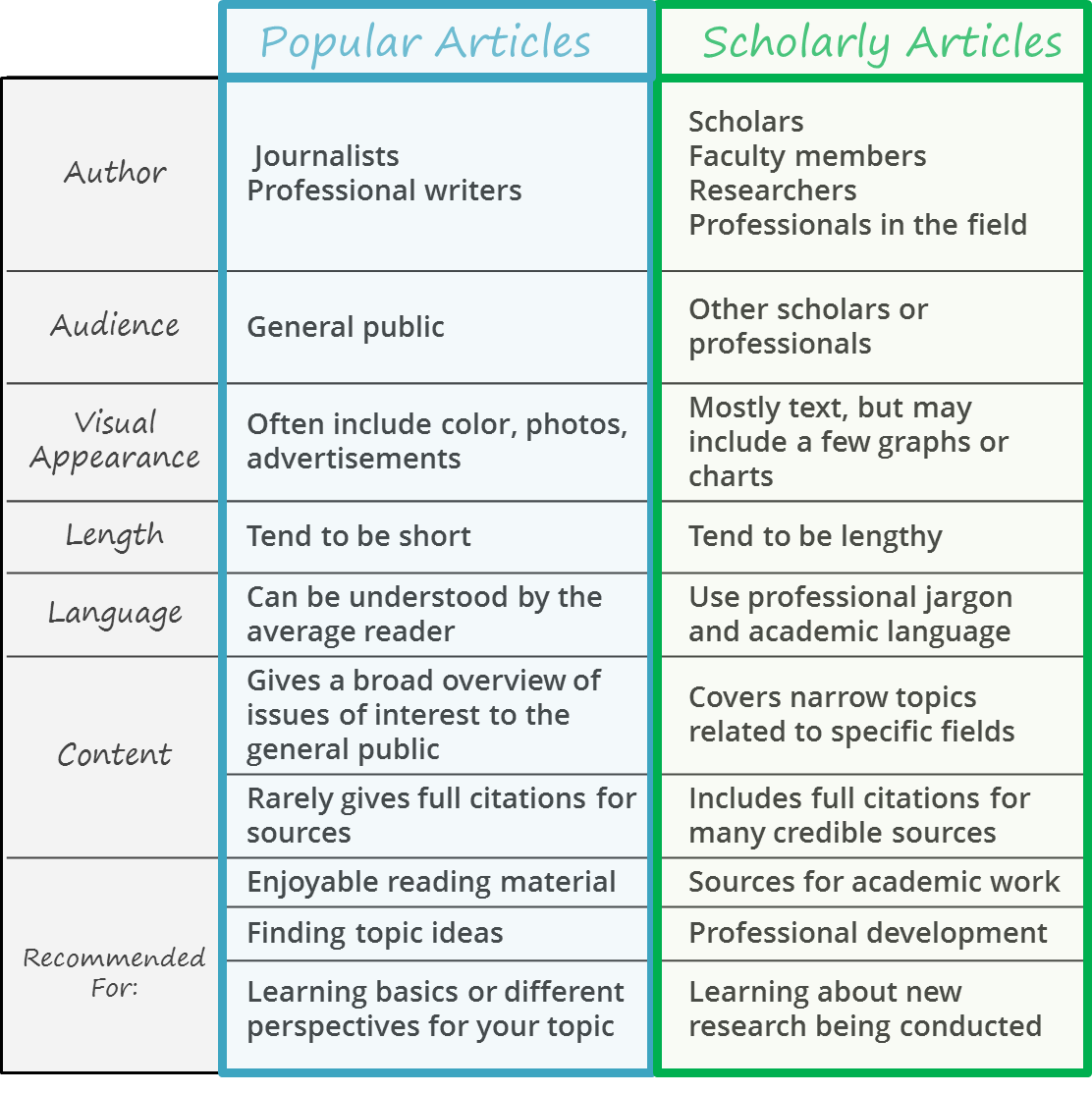Service Alert
Service Alert
Okay, so what do we do with those great search terms/keywords that we found? Where should you search? A lot of students use Google for their academic research, but Google isn't always the best place to find the kind of information you need.
Sometimes you'll get an instructor that asks you to use peer-reviewed or scholarly journals in your assignment. What does that mean? How do we find them?
Academic or scholarly journals are a type of periodical, like a magazine or newspaper. "Periodical" means that it's published on a regular schedule and not just one time, like a book. Academic journals have articles like regular magazines, but the articles are meant for academic purposes. These journals are published by academic institutions, about specific subjects, and they're focused on narrow, precise topics.
Most importantly, academic journals and academic articles are peer-reviewed. This means they're reviewed and approved by people in the same field for quality and credibility.
You can't get peer-reviewed articles in Google because the peer-review and publishing process takes a lot of money, so we have to pay to access them. That's where the library comes in! The library pays for access to databases full of scholarly journal articles so you can have access to them as a student.
We have a bunch of different article databases on different subjects (like an education database, a psychology database, etc) that you can use when you're doing research. I recommend ProQuest Central for people starting out with their research, because it has articles from a bunch of different subject areas.
Your professors and librarians recommend these library databases because the articles in them have been specifically selected for quality, which makes them more reliable than a lot of things you can find elsewhere on the Internet. This doesn't mean everything in an academic article is true! But you can generally trust an academic article more than something else that hasn't been reviewed.

Things to remember about peer-reviewed (scholarly) articles:
1. Typically written by professors, scholars, professional researchers or experts in the field
2. Before publication, articles are scrutinized by other experts in the same field (that's why we call it "peer review")
3. Because of this rigorous review process, peer-review articles are considered to be among the most authoritative and reliable sources you can choose for your research paper or project
4. Peer reviewed articles usually have a narrow focus, and often report the results of a research study. You must think critically and carefully about how such an article applies to your topic. Often, they can provide excellent examples or case studies to support the arguments or explanations within your research paper.
5. Occasionally, academic/scholarly journals publish articles that have not been peer-reviewed (for example, an editorial opinion piece can be published in a scholarly journal, but the article itself is not "scholarly" because it hasn't been peer-reviewed).
This page courtesy of Los Angeles Valley College Library.
